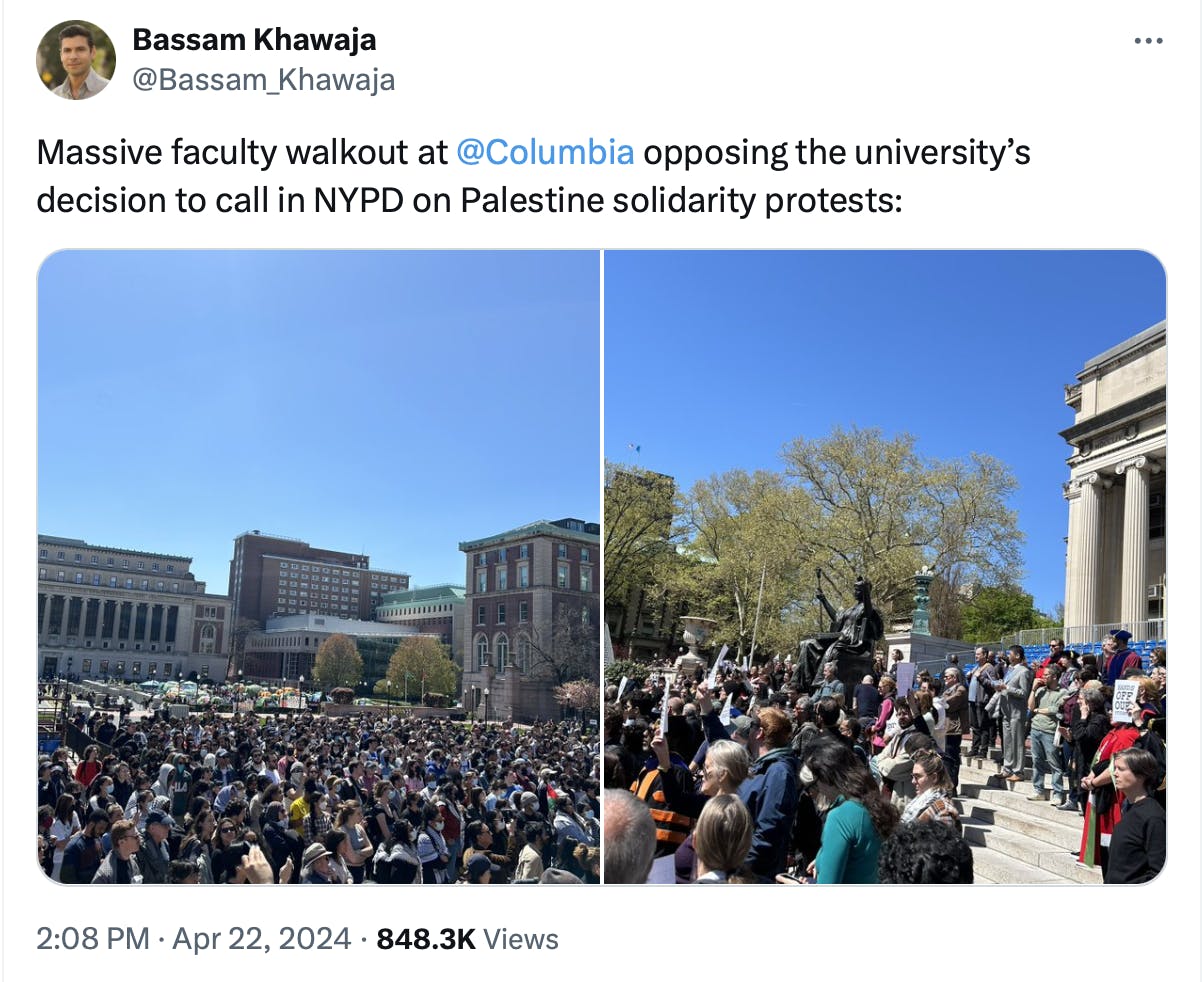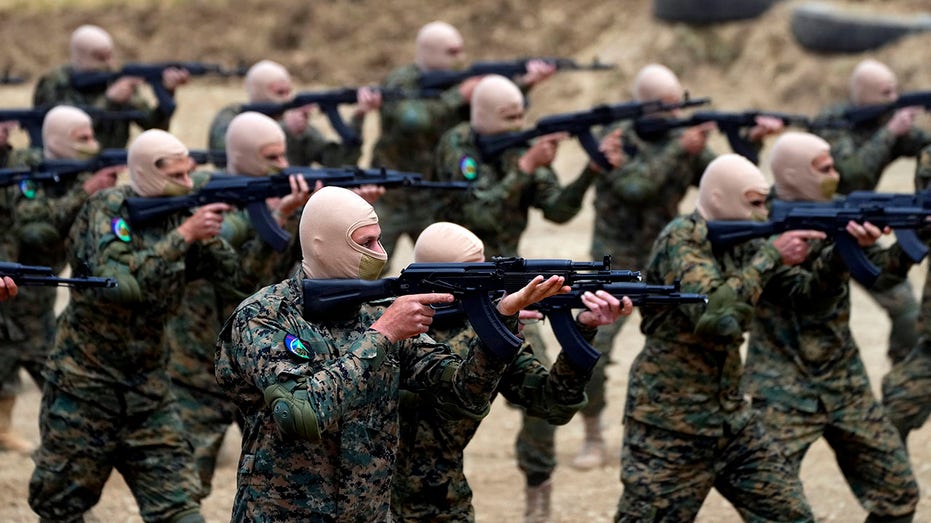Here’s What the Columbia University Protests Have Started Elsewhere
Columbia University tried to squash a pro-Palestine protest on their campus last week, but it hasn’t worked. In fact, it has prompted solidarity protests across the country.On Monday, 47 demonstrators were arrested at Yale University after taking part in pro-Palestine protests urging the university to divest from weapons manufacturers. Protesters had also set up an encampment on campus Friday night. Halfway across the country, student protesters at the University of Michigan set up an encampment on the university’s famous Diag, also demanding their school divest from businesses with financial ties to Israel.Over the weekend, protests sprang up in Boston-area universities, including MIT, Tufts University and Emerson College, with students setting up encampments on each campus. Students at the New School in Manhattan set up a “liberated zone” on campus on Sunday to show solidarity with Columbia’s protesters, and New York University students staged a march.These demonstrations came a few days after Harvard University students rallied in support of Columbia students, with the university’s famous Harvard Yard closed until Friday to seemingly prevent a student encampment there. Students at the University of North Carolina also set up tents on Friday in solidarity. Columbia sent city police officers onto campus last week to break up the encampment, resulting in the arrest of more than 100 students. In an effort to keep a lid on things, the school canceled in-person classes on Monday. One Columbia professor, Shai Davidai, who has attracted criticism over alleged threats to pro-Palestine students and calls to bring in the National Guard to shut down the protests, was also told to stay away from campus Monday.In response to the canceled classes, several Columbia faculty members led a class walkout. The day before, 54 Columbia law school professors sent an open letter to the university condemning the school’s decision to authorize a police raid and suspend student protesters.At Barnard College, which is affiliated with Columbia, three student admissions representatives, who work in the university admissions office, give tours, and speak with prospective students and families, resigned in protest Sunday over the university’s treatment of protestors. It’s becoming increasingly clear that Columbia University’s attempt to shut down protests has only brought them more attention—and spread the movement to different universities. If police crackdowns continue, the pictures and heavy-handed actions could echo protests over the Vietnam War decades ago, including at Columbia.

Columbia University tried to squash a pro-Palestine protest on their campus last week, but it hasn’t worked. In fact, it has prompted solidarity protests across the country.
On Monday, 47 demonstrators were arrested at Yale University after taking part in pro-Palestine protests urging the university to divest from weapons manufacturers. Protesters had also set up an encampment on campus Friday night.
Halfway across the country, student protesters at the University of Michigan set up an encampment on the university’s famous Diag, also demanding their school divest from businesses with financial ties to Israel.
Over the weekend, protests sprang up in Boston-area universities, including MIT, Tufts University and Emerson College, with students setting up encampments on each campus. Students at the New School in Manhattan set up a “liberated zone” on campus on Sunday to show solidarity with Columbia’s protesters, and New York University students staged a march.
These demonstrations came a few days after Harvard University students rallied in support of Columbia students, with the university’s famous Harvard Yard closed until Friday to seemingly prevent a student encampment there. Students at the University of North Carolina also set up tents on Friday in solidarity.
Columbia sent city police officers onto campus last week to break up the encampment, resulting in the arrest of more than 100 students. In an effort to keep a lid on things, the school canceled in-person classes on Monday. One Columbia professor, Shai Davidai, who has attracted criticism over alleged threats to pro-Palestine students and calls to bring in the National Guard to shut down the protests, was also told to stay away from campus Monday.
In response to the canceled classes, several Columbia faculty members led a class walkout. The day before, 54 Columbia law school professors sent an open letter to the university condemning the school’s decision to authorize a police raid and suspend student protesters.
At Barnard College, which is affiliated with Columbia, three student admissions representatives, who work in the university admissions office, give tours, and speak with prospective students and families, resigned in protest Sunday over the university’s treatment of protestors.
It’s becoming increasingly clear that Columbia University’s attempt to shut down protests has only brought them more attention—and spread the movement to different universities. If police crackdowns continue, the pictures and heavy-handed actions could echo protests over the Vietnam War decades ago, including at Columbia.


